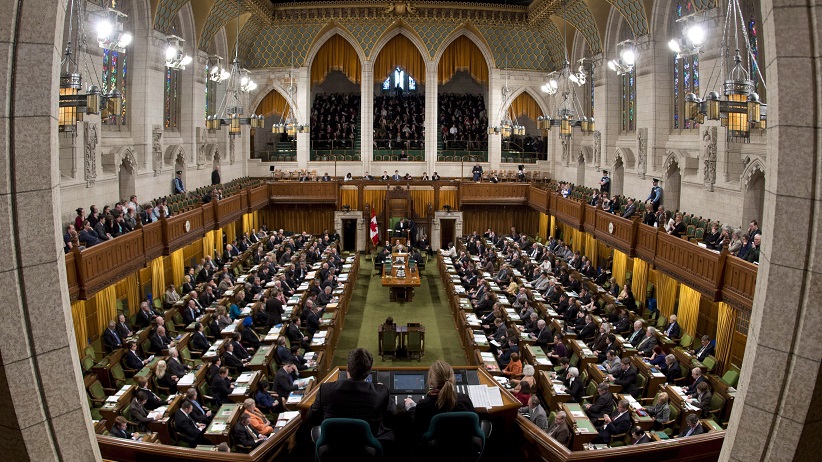Must-see QP: Tony Clement’s fine line
Your daily dose of political theatre
Share

Maclean’s is your home for the daily political theatre that is question period. If you’ve never watched, check out our primer. Today, QP runs from 2:15 p.m. until just past 3. We livestream and liveblog all the action.
The must-see moment
Tony Clement is walking a fine line on his government’s pursuit of tax evaders. The Treasury Board president is distancing himself from a public sector pension board that manages assets worth almost $94 billion and found itself in the crosshairs of CBC investigative journalists. Clement isn’t condemning the Public Sector Pension Investment Board, nor is he defending it. Probably, he’s hoping the rather complex story goes away. Here’s the scoop.
The federal agency that invests civil servants’ pensions set up a complex scheme of European shell companies and exploited loopholes that helped it avoid paying foreign taxes — a move that could undermine Canada’s standing internationally as its allies try to mount a crackdown on corporate tax avoidance.
The arrangement involved two dozen entities, half of them based in the financial secrecy haven of Luxembourg, and all of them set up in order to invest money in real estate in Berlin by a Crown corporation called the Public Sector Pension Investment Board.
The pension board did nothing illegal, but a German tax official called the scheme “a very aggressive way to avoid taxes.” Why is this a problem for a Conservative cabinet minister? The answer lies in the section of Budget 2014 that targets international tax cheats. Look for the words in bold.
In support of Canada’s low-tax plan, the Government has taken action in recent years to combat international tax evasion and aggressive tax avoidance. By protecting the tax base, these measures help to keep Canadian tax rates low and competitive, thereby improving incentives to work, save and invest in Canada.
Megan Leslie, the NDP’s deputy leader, figured this was worth a few minute of question period’s spotlight. So she asked Clement why a crown corporation would try to avoid taxes.
Clement managed to run away from the question while standing perfectly still. “This is an arm’s-length administration from the federal government. Its business and affairs are managed at a day-to-day level by a board of directors. That’s how it works,” he said. “We expect that all investments are in compliance with laws and rules and regulations in a transparent manner, and to the greater benefit of the clients.”
That board of directors, however, didn’t appear out of thin air. The Public Sector Pension Investment Board Act makes clear that the responsible minister—that would be the President of the Treasury Board—appoints each of the 11 sitting directors. Clement appointed or reappointed six of those directors this year, and another four since he became Treasury Board President in 2011. They’re there because of him, even if they do operate at arm’s length.
One wonders what Tory MP Mark Adler thinks of the PSPIB’s investments. When he stood in the House to defend Budget 2013, the government’s first attempt at cracking down on aggressive tax avoiders, Adler admonished the NDP for not supporting the legislation.
We would be closing tax loopholes that a select few are exploiting to avoid paying taxes. Why would the NDP stand up for tax cheats? Loopholes do not serve an economic purpose. They do not grow our economy and they do not put people back to work. Why would the NDP stand up for tax cheats? By closing loopholes and putting an end to this type of exploitation, we can keep taxes low for Canadian families, seniors and businesses. Why does the NDP stand up for tax cheats?
The dangerous thing about Hansard is that it remembers everything.
The recap
The context
We were watching Dean Del Mastro resign his seat after a 14-minute, ultra-defensive soliloquy that ended with a flourish of humility. Tories applauded. Some were aghast. Everyone agrees that the man loves his hometown. And now, importantly, he’ll no longer occupy anyone’s time during question period. All the more reason to talk about that other preoccupation of the Commons: who cares most about Canadian families.